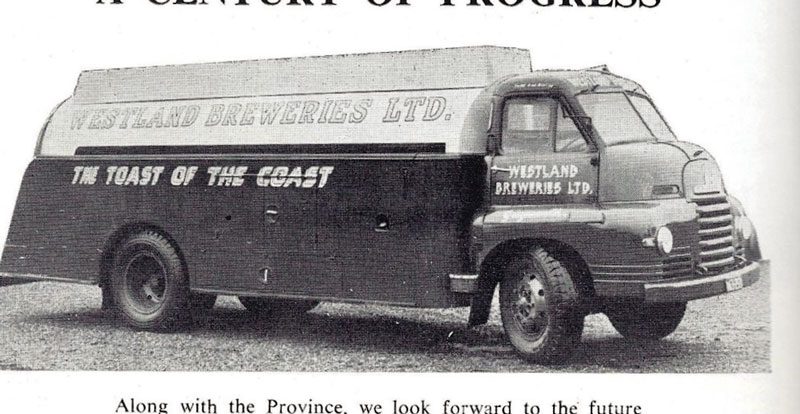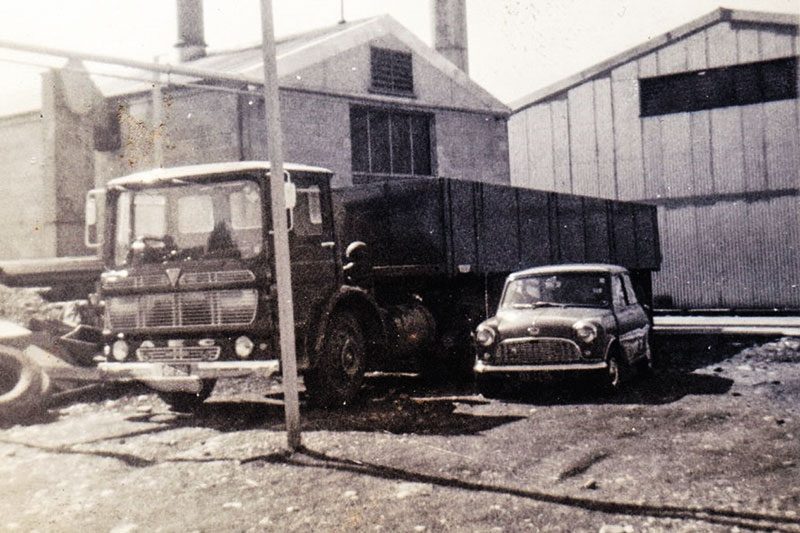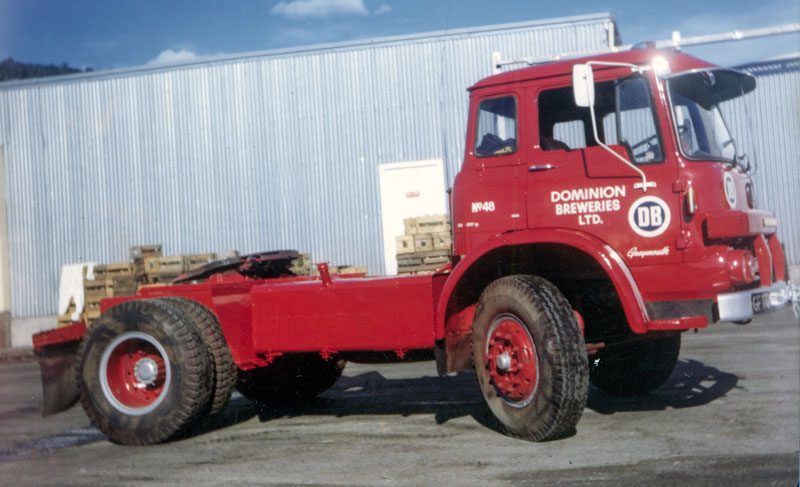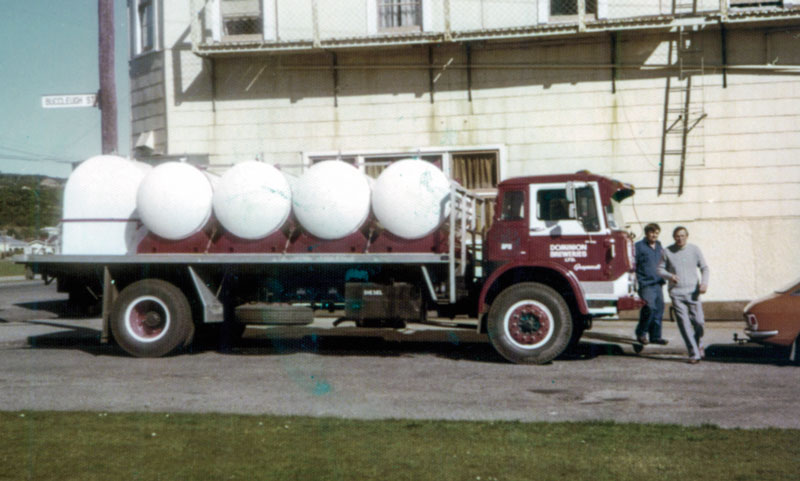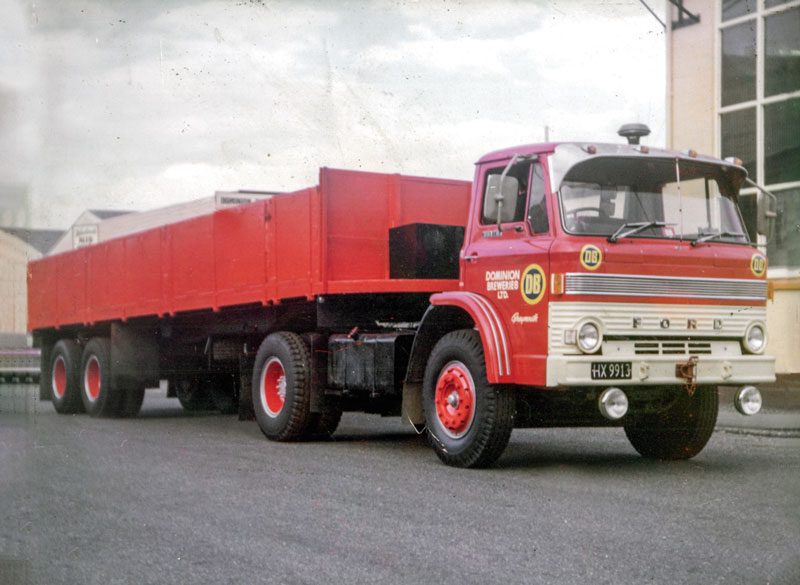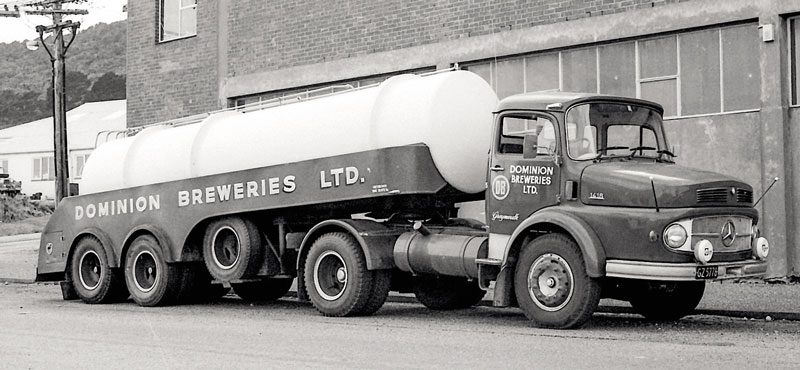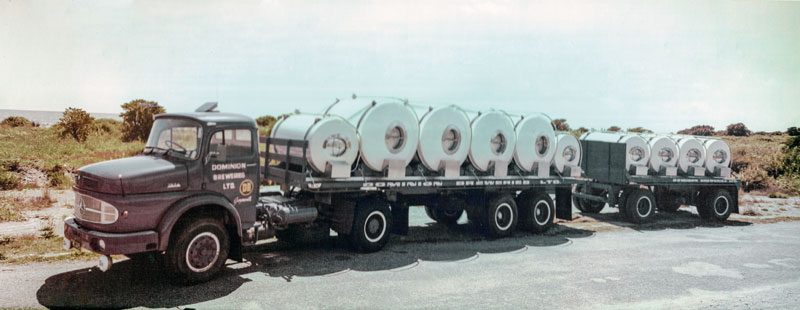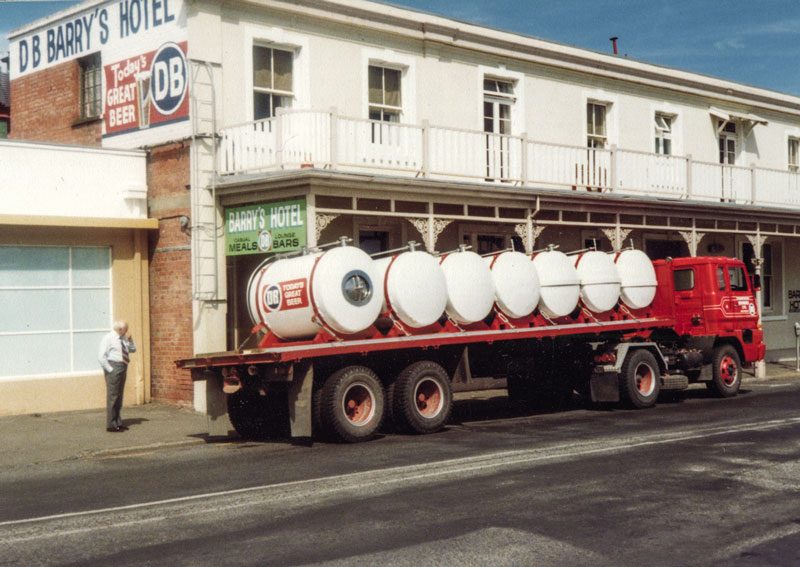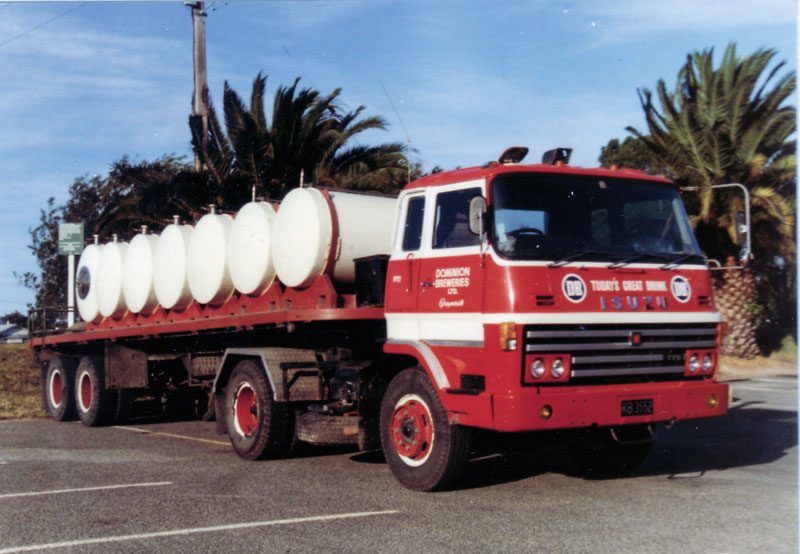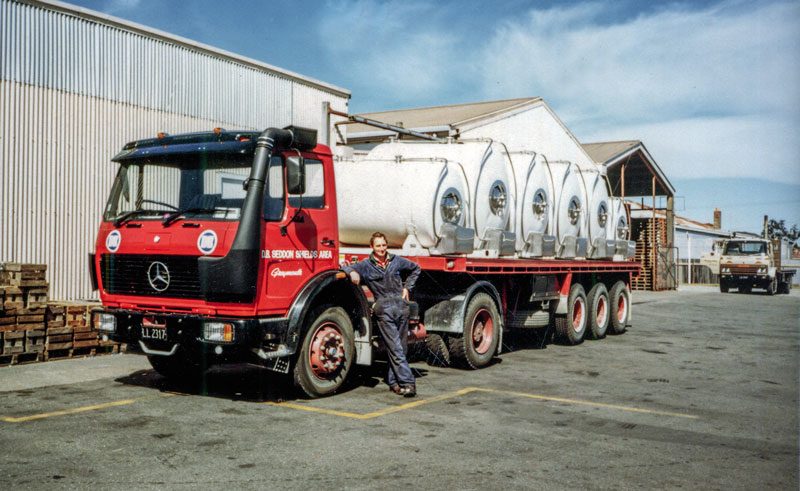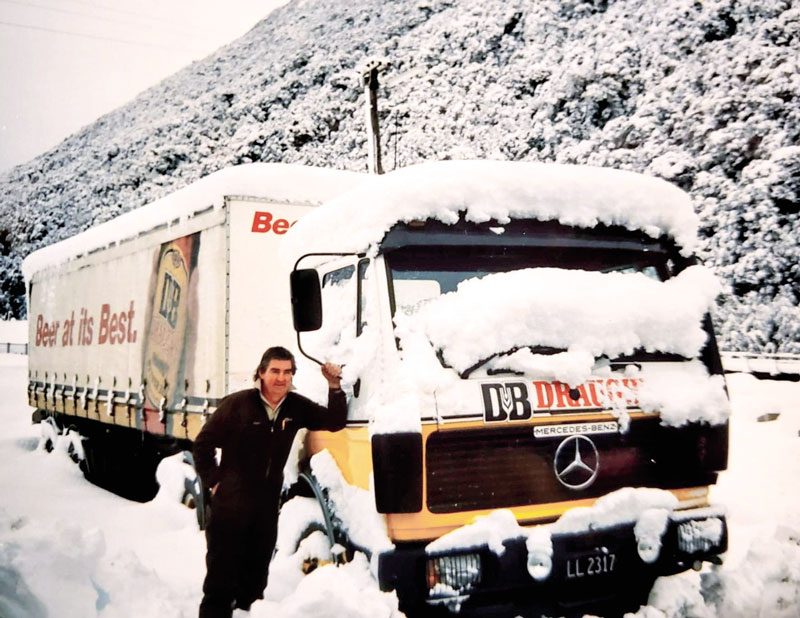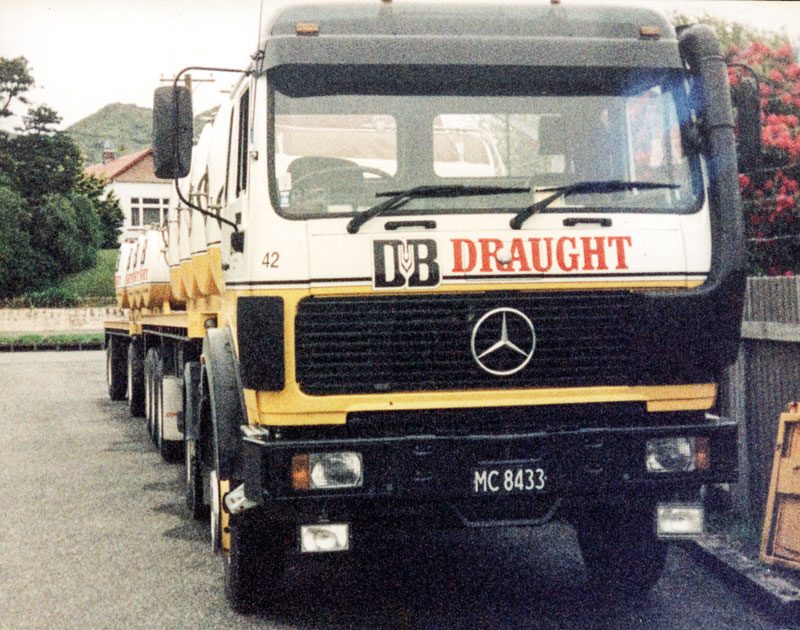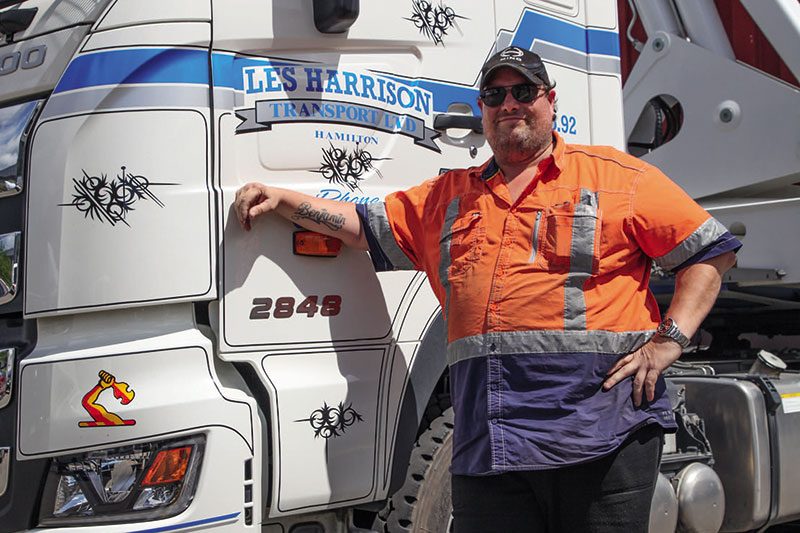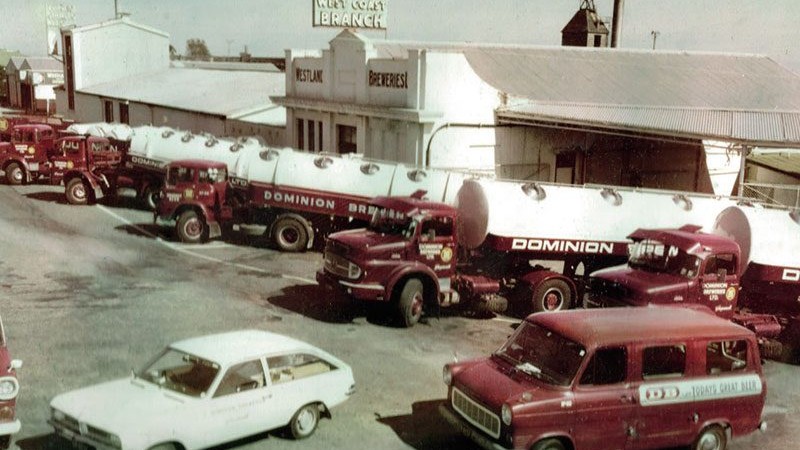
After almost a century, the closure of Greymouth’s Monteith’s Brewery in 2020 spelt the end of West Coast-based beer production. New Zealand Trucking had the pleasure of catching up with some of the men who, over the course of the past five decades, worked to ensure there was always cold beer on tap.
Beer in the mid- 1800s was a true staple of the West Coast. In 1868, there were more than 150 pubs and four breweries between Hokitika and Greymouth.
That number had reduced to only 37 pubs by 1927, mostly due to the population decreasing as the fortunes from coal and gold mining ran out.
Stewart Monteith and his son, William, operators of Reefton’s Phoenix Brewery, merged with the coast’s other three brewers that same year to form Westland Breweries. Perhaps the most well- known name in New Zealand beer, Dominion Breweries purchased the business in 1969 and renamed the Greymouth operation DB Westland Breweries.
Trucks were integral to the Westland Breweries business before DB’s acquisition. Over time, the company owned several Bedfords (S Models and, latterly, TKs) and an AEC Monarch.
Ken Swinburn became the fleet mechanic in 1970, a role he held for 16 years. He recalls the Monarch was still in service and remembers its appetite for windscreens, mainly due to wayward stones striking the expanse of glass that was a feature of AEC’s Ergomatic cabs. A particularly bad week on the run between Greymouth and Westport saw five windscreens destroyed, which kept the local glazier very busy.
D-Series Fords became a feature of the fleet. Initially, a D800 was sent south from DB in Auckland, fitted with, to quote Ken, a “knit one, purl one, drop one gearbox”. (Four-speed, flick a switch, which gave you another four ratios.)
Ken says the company was never afraid of spending money to keep the truck fleet in top condition, mechanically and appearance-wise.
During this era, Tasman Tyres looked after the fleet’s rubber, signwriting was done by local Jimmy Rhodes, and Mobil Oil was the supplier of fuel and lubricants. Everything else was done in the Greymouth workshop.
Ken’s comment regarding the condition of the trucks is echoed by Les Heyden, an employee of DB on the West Coast for over 30 years.
Les spent his childhood riding in the DB trucks with his uncles Peter Burnett and Jock Allen. He took frequent trips in a Mercedes-Benz 1418 delivering bulk beer to Parkers Road in Tahunanui, Nelson, where it was transferred into large storage tanks for further distribution.
Les was offered a job driving for DB in 1986 and leapt at the chance. At morning smoko on his first day, he was presented with a pint of beer, a common occurrence in that era.
A Mercedes-Benz 1424 A-train combination was his first rig, and DB had recently changed from having set trucks, doing set runs to the Greymouth fleet, operating on a seven-week rotating roster.
Runs included south to Haast, up the coast as far north as Karamea, as well as to Nelson and Golden Bay and to Blenheim. Trips to Christchurch and the DB Mainland Brewery at Washdyke, near Timaru, were also common.
The A-train trailer combination was made up of a three-axle short semi and two-axle dog trailer, which had a mix of small (135 gallons/614 litres) and large (270 gallons/1228 litres) stainless tanks on them. Beer was pumped through a maze of control valves and hoses to tanks located generally in the receiving hotel’s cellar.
Tanks were supposed to have been cleaned before a fresh delivery arrived but often, they hadn’t. The drivers would get in and clean them if necessary. Les remembers one driver taking his watch off while cleaning one. He forgot to grab it when he climbed out and filled it with fresh product. When the tanks were empty the following week, the watch was recovered, still happily ticking.
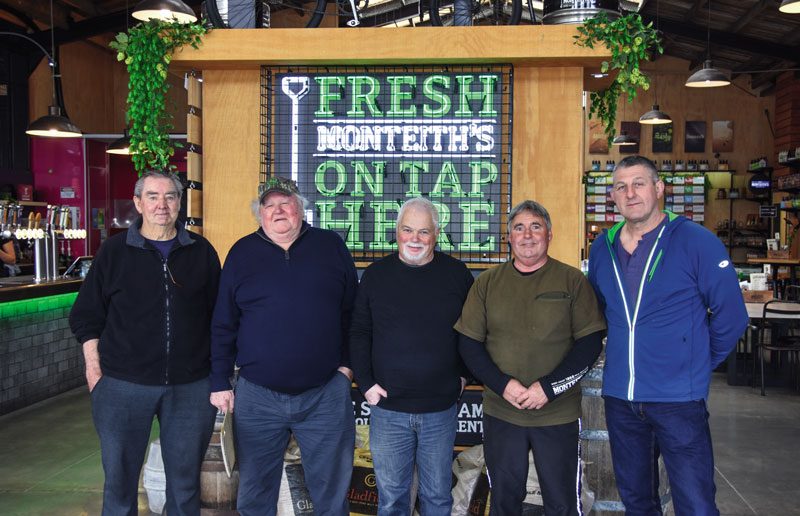
Some varieties of beer were transported in 30- and 50-litre kegs. These were manhandled off the truck deck and dropped onto the ‘mother-in-law’ – an old bag filled with cork designed to break their fall. They were then lowered by rope into the cellar and stacked where the publican wanted them.
DB owned many hotels on the West Coast. On some runs, besides bulk beer, the trucks carried meat, bottled beer, wine, spirits, gas bottles and even bags of laundry to the company- owned hotels.
In the 1990s, as the beer-consuming public’s palate drifted towards less mainstream brews, the Greymouth site was renamed Monteith’s Brewery and began brewing some traditional brews to reflect its historical origins. This change in volume influenced the West Coast trucking operation dramatically. It was downsized at the turn of the century, resulting in some staff redeployments.
Only a single Greymouth- based linehaul driver was required under the new regime. Bob Glover drove the remaining Mercedes-Benz 2538 B-train combination, while Les went into the brewery to learn the craft of beer brewing and acted as the second driver when required.
Kevin Kilkelly became an owner-driver with a Mitsubishi Canter purchased from DB, which he used to deliver kegs and packaged beer between the Grey Valley and South Westland. Kevin replaced the Canter with an Isuzu NPR later, which wore the Monteith’s livery.
In 2010, Dominion Breweries outsourced all West Coast beer distribution to external contractors. This saw the last Greymouth- based truck, Mercedes-Benz No.47, roll out the gate onto Turumaha Street for a final time.
Monteith’s Brewery went on to produce an extensive range of products until production ceased at the end of 2020, bringing almost a century of commercial brewing on the West Coast to a close.
A note from New Zealand Trucking
This article was compiled over several enjoyable visits to Greymouth during the past two years. Sadly, Ken Swinburn passed away while we were in the final throws of putting this together. RIP Ken
Read more
Hardwork and ambition
0 Comments3 Minutes
Friends and Family
0 Comments16 Minutes
Sidelift savant
0 Comments5 Minutes
Covering the bases
0 Comments25 Minutes


